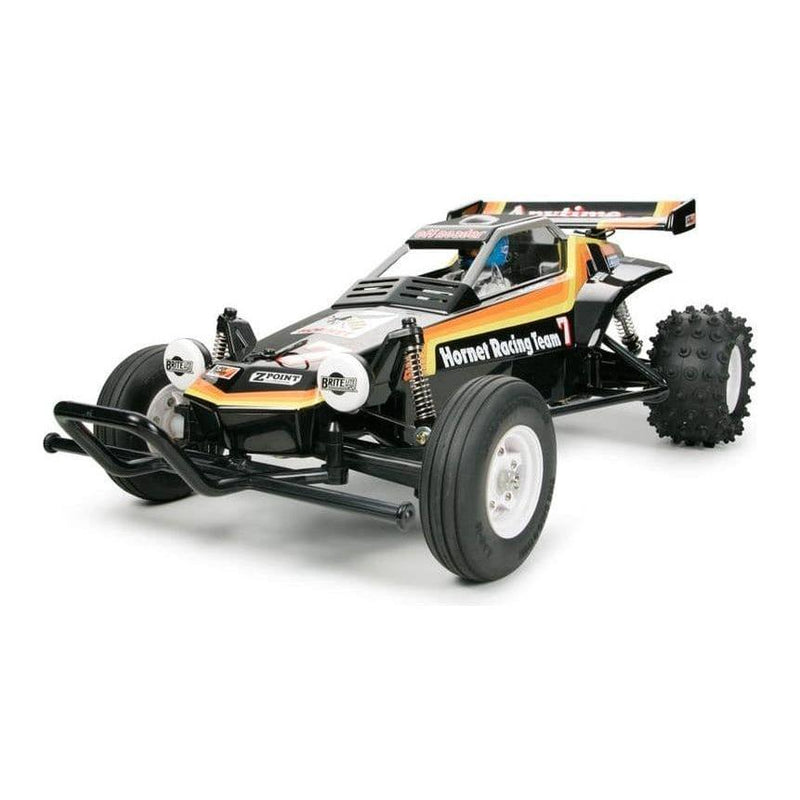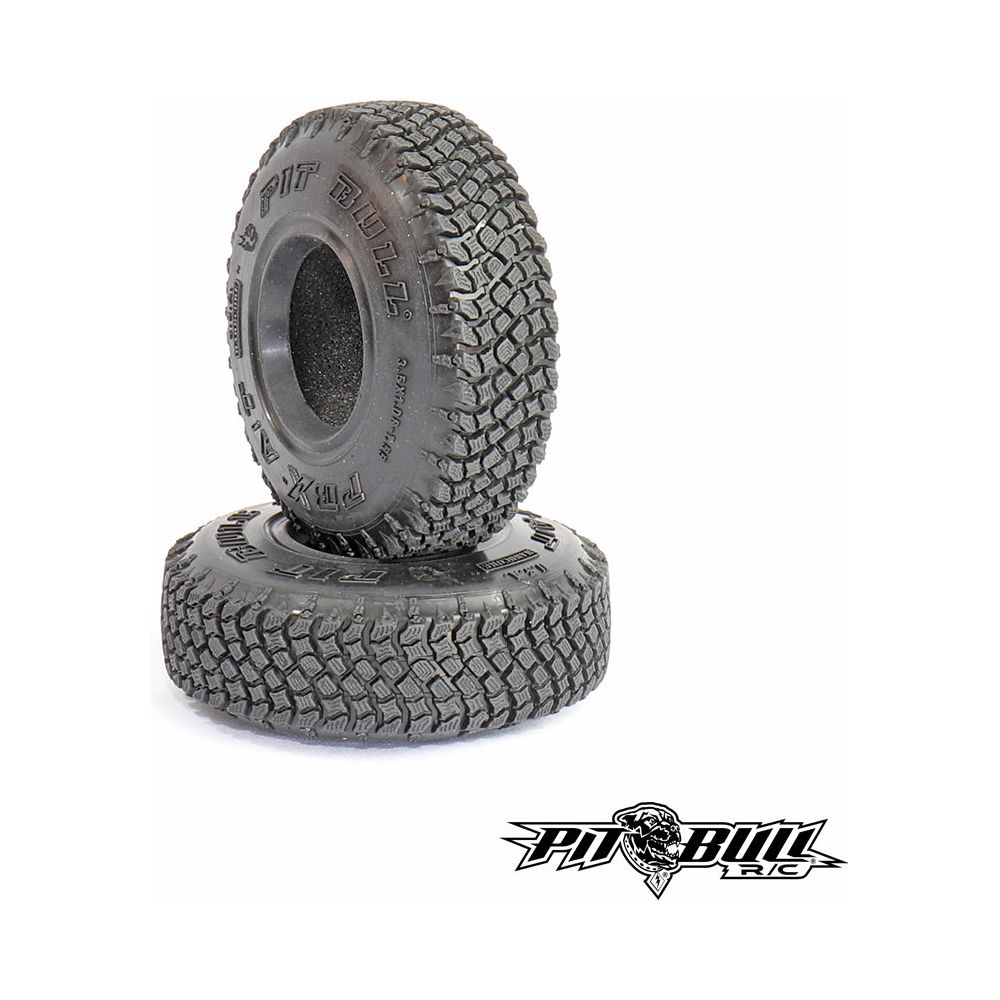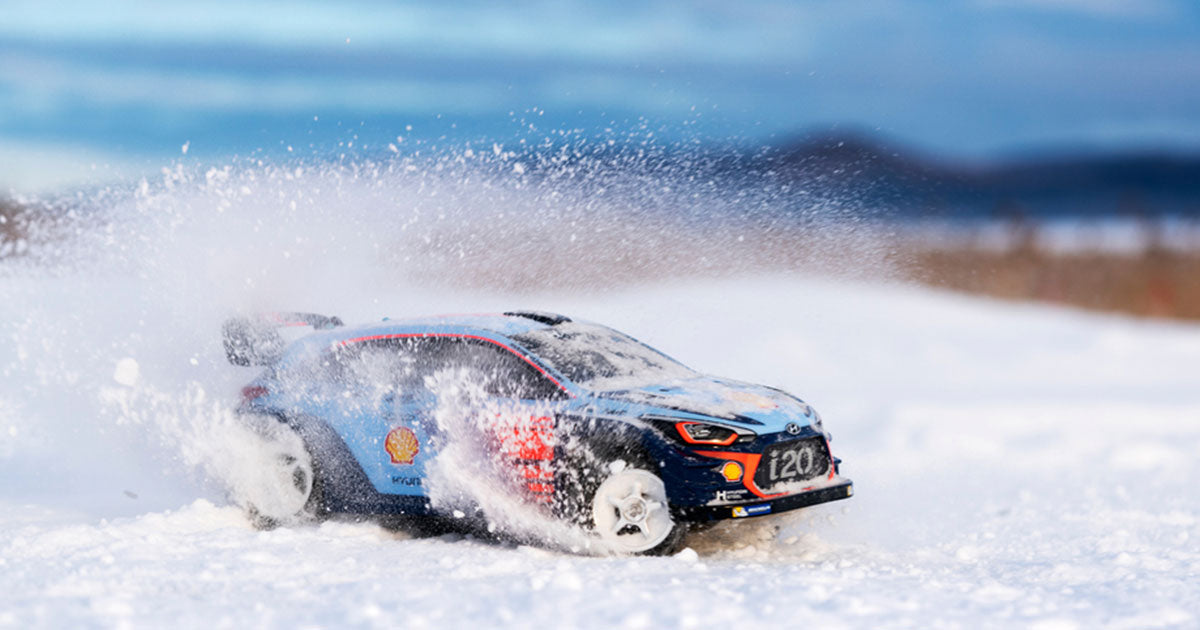Weather-Proofing Your RC: Tips for All-Season Fun
Master the elements and keep your RC performing at its peak
The thrill of RC vehicle operation knows no seasonal bounds, yet the elements can pose significant challenges to your prized machine's performance and longevity. Whether you're navigating through winter's icy grip or autumn's damp conditions, proper weather-proofing is essential for maintaining your RC's peak performance and protecting your investment. At Hearns Hobbies, we understand the importance of keeping your RC ready for any weather challenge.
| Weather-Proofing Essentials at a Glance | |
|---|---|
| Weather Impacts | Battery efficiency, electronic components, chassis integrity |
| Essential Preparations | Waterproofing, component protection, specialised tools and equipment |
| Maintenance Requirements | Pre-run checks, post-run cleaning, seasonal adjustments |
| Key Upgrades | Weather-specific parts, protective coatings, enhanced electronics |
| Safety Considerations | Component protection, operational guidelines, maintenance protocols |
Understanding Weather Impact on Your RC Vehicle

When it comes to RC performance, Mother Nature often plays a decisive role in your vehicle's capabilities and longevity. Understanding these environmental impacts is crucial for maintaining your RC vehicle's optimal performance across all seasons. Temperature fluctuations, moisture levels, and various weather conditions can significantly affect everything from battery efficiency to motor performance, making weather awareness an essential aspect of RC mastery.
Temperature Effects
Cold weather presents particular challenges for RC enthusiasts, with battery performance being the most notable concern. LiPo and NiMH batteries, commonly used in RC vehicles, experience significant efficiency drops in lower temperatures. The chemical reactions within these power cells slow down considerably, leading to reduced runtime and diminished power output. Moreover, extreme cold can affect the viscosity of oils and lubricants in your vehicle's components, potentially impacting gear mesh and bearing performance.
Moisture Challenges
Moisture presents another significant challenge to RC operation, potentially affecting both mechanical and electrical components. Water exposure can lead to corrosion in metal parts, particularly in bearings and drive components that require proper lubrication. Electronic speed controllers (ESCs), servos, and receivers are especially vulnerable to moisture damage, making proper waterproofing essential for wet-weather operation. Understanding these risks allows you to take appropriate preventive measures with your radio equipment.
Environmental Considerations
Different terrains and weather conditions require specific adaptations in your driving technique and vehicle setup. Sandy environments can cause excessive wear on bearings and moving parts, while muddy conditions might demand additional protection for your chassis and electronics. High humidity levels can affect electronic component reliability, making moisture protection crucial even when not directly exposed to water. Understanding these environmental factors helps in selecting appropriate maintenance tools and protective measures.
Remember, prevention is always better than cure when it comes to weather-related RC issues. Regular maintenance and appropriate protective measures can significantly extend your vehicle's lifespan and maintain its performance across all weather conditions.
Component-Specific Weather Impact
Understanding how weather affects specific components helps in implementing targeted protection strategies. Motors and ESCs are particularly susceptible to temperature variations, potentially affecting their efficiency and lifespan. Servos, being precision instruments, require special attention in adverse weather conditions, as moisture and temperature changes can impact their accuracy and response time. The chassis and suspension components face their own challenges, with temperature fluctuations affecting plastic and composite materials' flexibility and durability. Regular inspection of these critical parts becomes even more crucial in challenging weather conditions.
Pre-Run Preparations
Proper preparation is crucial for ensuring your RC vehicle's optimal performance and longevity in challenging weather conditions. A thorough pre-run inspection and appropriate weatherproofing measures can make the difference between an exhilarating session and a disappointing breakdown. Understanding and implementing these preparatory steps will help protect your investment and enhance your RC experience across all seasons.
| Preparation Area | Essential Actions |
|---|---|
| Electronic Protection | Apply waterproof sealants, check servo connections, secure ESC mounting |
| Mechanical Inspection | Check bearings, apply weather-appropriate lubricants, verify drive system integrity |
| Surface Preparation | Install appropriate tyres and wheels, adjust suspension settings |
Essential Pre-Run Checklist
Start with a comprehensive inspection of your vehicle's critical components. Examine all seals and gaskets for wear, verify the integrity of your waterproofing measures, and ensure all maintenance tools are readily available. Pay particular attention to battery compartment sealing and connector protection, as these areas are especially vulnerable to moisture damage.
During the Run
Navigating your RC vehicle through challenging weather conditions requires heightened awareness and adjusted driving techniques. Understanding how to adapt your control inputs and recognising potential hazards can significantly impact your vehicle's performance and safety. Proper throttle management and terrain assessment become particularly crucial in adverse weather conditions.
Driving Techniques
Adapt your driving style to match the conditions, using smoother throttle inputs and gentler steering movements. Monitor your RC vehicle's behaviour closely, paying attention to any unusual sounds or handling characteristics that might indicate developing issues. When navigating through wet conditions, maintain steady momentum to prevent bogging down whilst avoiding excessive speed that could lead to loss of control.
Performance Monitoring
Keep a close eye on your vehicle's performance metrics, particularly battery temperature and motor behaviour. If you notice any significant changes in performance or handling, consider ending your session early to prevent potential damage to sensitive components. Regular brief stops during your run can help prevent overheating and allow for quick visual inspections.
Post-Run Maintenance
Thorough post-run maintenance is essential for preserving your RC vehicle's condition and ensuring its readiness for future use. This critical phase involves careful cleaning, drying, and inspection of all components, particularly after exposure to challenging weather conditions. Implementing a comprehensive maintenance routine can significantly extend your vehicle's lifespan and maintain its peak performance.
Essential Post-Run Steps
- Thoroughly clean all exposed surfaces using appropriate cleaning tools and materials
- Carefully dry all components, paying special attention to electronic areas
- Apply fresh lubricant to moving parts using quality RC oils
- Inspect seals and gaskets for potential damage or wear
- Check all electrical connections for signs of corrosion or water ingress
Remember that proper maintenance is an investment in your RC vehicle's future performance. Taking the time to thoroughly clean and inspect your vehicle after each run will help prevent costly repairs and ensure countless hours of enjoyable operation.
Upgrades for All Seasons

Strategic upgrades can dramatically improve your RC vehicle's all-weather performance and durability. Investing in quality weather-specific modifications not only enhances your driving experience but also provides essential protection for your vehicle's vital components. Understanding which upgrades to prioritise can make a significant difference in your RC's ability to handle challenging conditions.
| Essential Seasonal Upgrades | ||
|---|---|---|
| Season | Recommended Upgrades | Benefits |
| Winter |
- Snow tyres - Waterproof electronics - Extended chassis protection |
Enhanced traction, protection against moisture and salt |
| Spring/Autumn |
- Mud guards - Sealed bearings - Enhanced servo protection |
Improved wet weather performance, debris protection |
| Summer |
- Heat sinks - Ventilated covers - High-temp lubricants |
Better thermal management, enhanced durability |
Other Upgrade Considerations
Consider investing in high-performance upgrades such as brushless motor systems with enhanced cooling capabilities, premium-grade bearings, and advanced electronic speed controllers. These performance parts can significantly improve your vehicle's reliability and performance across varying weather conditions. Additionally, upgrading to high-capacity, weather-resistant batteries can extend your running time whilst maintaining consistent power output.
Safety Tips
Safety should always be your primary concern when operating RC vehicles in challenging weather conditions. Understanding and implementing proper safety protocols not only protects your investment but also ensures an enjoyable and incident-free experience. Regular safety checks and preventive measures can help avoid costly repairs and potential accidents.
Electronic Safety
Protect all electronic components with appropriate sealants and ensure proper installation of your radio equipment. Regularly inspect wire connections for signs of wear or corrosion, and maintain proper insulation of all electrical components. Consider using additional moisture barriers around sensitive electronic areas, particularly in wet conditions.
Mechanical Safety
Regularly inspect all mechanical components for wear and tear, paying particular attention to drivetrain elements and suspension parts. Ensure all maintenance tools are properly stored and readily available for emergency repairs. Keep spare parts on hand for commonly stressed components.
Prevention is always better than cure. Regular safety checks and proper maintenance procedures will help ensure both your safety and your RC vehicle's longevity, regardless of the weather conditions you encounter.
Frequently Asked Questions
How do I know if my RC vehicle is properly waterproofed?
A properly waterproofed RC vehicle should have sealed electronics compartments, protected servo connections, and waterproof connectors. Check that all critical components are covered with appropriate sealants, and verify that battery compartments and receiver boxes are properly sealed. However, even with waterproofing, it's important to avoid submerging your vehicle and to perform thorough cleaning after exposure to moisture.
What's the best way to protect my RC's electronics in cold weather?
To protect your RC's electronics in cold weather:
- Pre-warm your batteries before use to maintain optimal performance
- Install additional insulation around electronic components
- Use appropriate cold-weather lubricants for mechanical parts
- Consider adding a temperature monitoring system
- Store electronics in a warm, dry place when not in use
How often should I perform weather-related maintenance?
Weather-related maintenance frequency depends on usage and conditions, but generally:
- After every wet or muddy run: Immediate thorough cleaning and drying
- Weekly: Check seals and waterproofing integrity
- Monthly: Inspect and replace worn weather protection components
- Seasonally: Update weather-specific modifications and protections
- Every few months: Complete overhaul of weather protection systems
What are the signs that moisture has damaged my RC's electronics?
Look for these indicators of moisture damage in your electronic components:
- Erratic behavior in servos or steering response
- Corrosion on connectors or circuit boards
- Unexplained power loss or electrical shorts
- Visible water marks or residue inside electronic housings
- Inconsistent motor performance or ESC function
Conclusion
Weather-proofing your RC vehicle is essential for maintaining performance and protecting your investment across all seasons. By implementing proper preparation techniques, utilizing appropriate protective measures, and maintaining a consistent maintenance routine, you can ensure your RC vehicle remains ready for action regardless of weather conditions.
The key to successful all-weather RC operation lies in understanding the specific challenges each season presents and preparing accordingly. Whether it's protecting electronics from moisture, maintaining optimal battery performance in cold weather, or ensuring proper cooling in summer conditions, each weather scenario requires its own unique approach and solution.
Final Thoughts:
Remember that investing time in weather-proofing and maintenance is far more cost-effective than replacing damaged components. With the right preparation, tools, and knowledge, you can enjoy your RC hobby year-round while maintaining your vehicle's peak performance and longevity. Stay prepared, stay informed, and most importantly, stay in control of your RC adventures regardless of what Mother Nature throws your way.
 is here! Shop now, pay later in 4 easy installments
is here! Shop now, pay later in 4 easy installments

